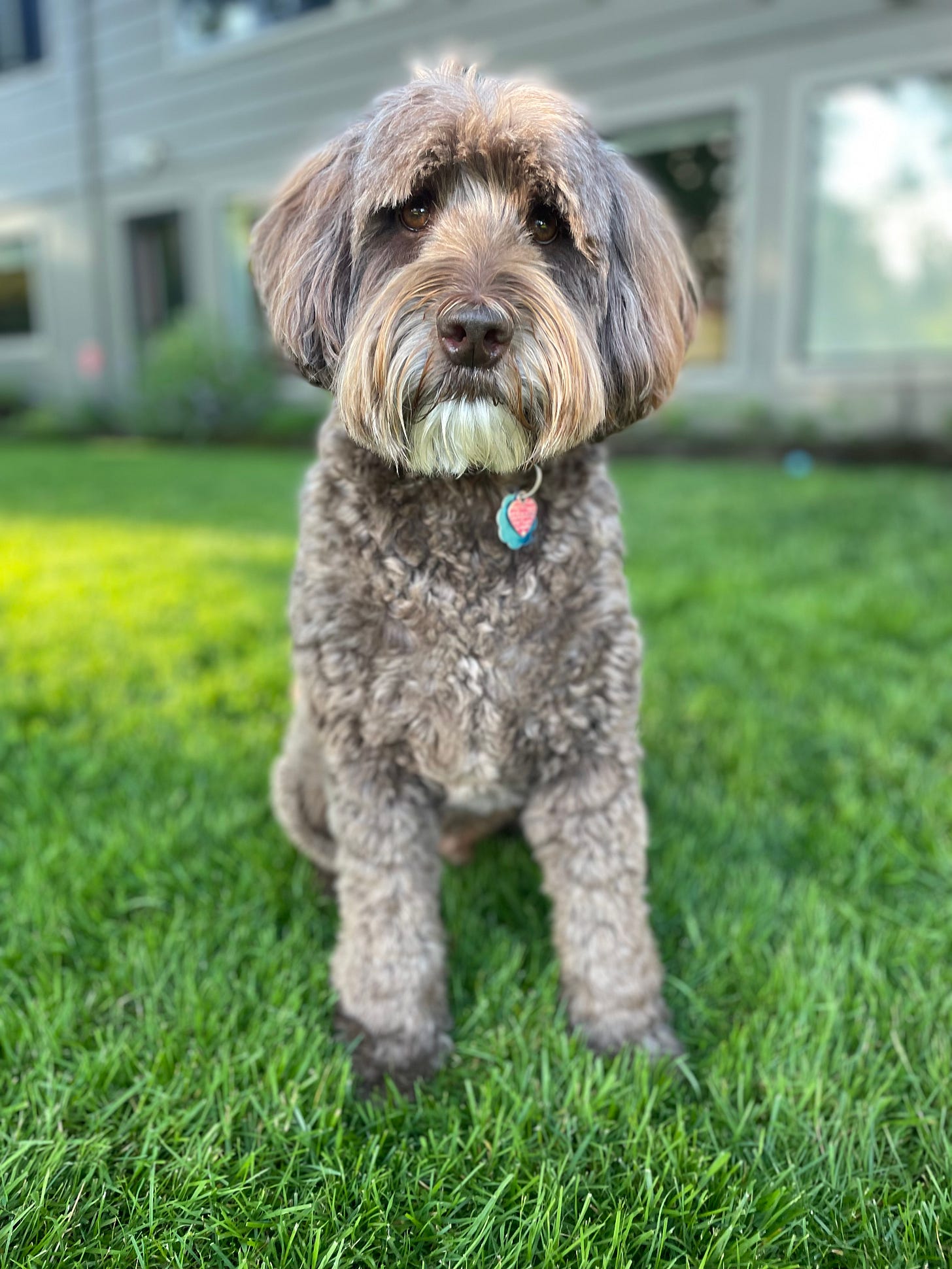How gratitude helped me heal from trauma
A near-death experience taught me to live a grateful life + a Gratitude Quiz.
“Gratitude is an emotion that reflects our deep appreciation for what we value, what brings meaning to our lives, and what makes us feel connected to ourselves and others.” Brene Brown, Atlas of the Heart
Hello, my friend. I hope you have plans to connect with friends or family for Thanksgiving if you’re in the U.S. We are getting together with other friends who don’t have family in town - an orphan dinner. My son and his family will drive to his dad’s house for the holidays. I have a special Gratitude Quiz at the bottom of this post. It’s a quick quiz that will tell you how grateful you are. Practice being grateful. It can shift your mood!
One thing I want you to know about:
Women’s group coaching - six women / six weeks
Sundays 10 - 11:30 am PT / 2:30 pm ET on Zoom
Dec. 29 - February 2, 2024
Investment in you: $149
I’m recruiting five more women (I already have one of the six) to be coached by me once a week for six weeks. You only need to have a fear, belief, or negative thought that is causing you to suffer emotional pain.
You’ll finish this six-week class feeling less fear or stress from beliefs holding you back. You’ll learn to question any negative thought, belief or fear causing you emotional suffering so you can do it on your own.
If you have questions about the class, please email me at sherold@sheroldbarr.com.
***
I slowly opened my eyes. I heard beeping sounds and looked around to see I was in a recovery room after surgery. I started feeling anxiety rising in my chest.
“John, are you here?” I called to find out if he was nearby.
I started feeling panicky. A nurse swiftly walked into my room and said, “John went to get some sleep at a hotel. I’ll call him now and tell him you’re awake.”
I looked down at my poor body. I was flat on my back. My body was tethered to tubes and monitors. I felt overwhelming compassion for what my body was doing to save my life. I had a Foley catheter attached to my bladder and wore light blue inflated cuffs on my lower legs to prevent a pulmonary embolism.
I had a near-death experience (NDE) after my third abdominal surgery.
I knew something had happened when I woke up, but I didn’t understand it. I felt like I’d been touched by the divine with more energy.
After I had been anesthetized and went under, things became exciting. It was pitch black. A wise voice telepathically said,
“You get to choose how you go through this experience. What will you choose?
“I don’t want to become a victim,” I thought.
I’ll choose the high road and use love and gratitude to heal.
After I was taken off the ventilator, I couldn’t stop thinking about what I’d experienced. The voice was so authentic and vivid that I’d never forget it.
I made a conscious choice while I was unconscious.
I felt happy because I would use love and gratitude to heal. I had a path forward. I asked the nurse manager,
“Could you get me some patient satisfaction forms so I can fill them out for my care providers?”
“Sure, I’ll bring some to you,” she said, surprised because few people asked for them. “I know the staff will be happy.”
Every evening, if I was physically able, John and I filled out one to two patient satisfaction forms to thank my care providers by name for their care.
As my caregivers cared for me, I asked each one about themselves. I found out one nurse had given birth to a stillborn baby six months before. I found out another was a CNA but in nursing school. I listened and thanked them for their care. In six weeks, I got to know them well and looked forward to having certain nurses care for me.
I now practice using gratitude for a variety of things. I walk around our house and occasionally say, Thank you, house. I love living here.
I get a lot of joy out of taking our labradoodle, Teddy, on daily walks or to stores that allow dogs. People run up to us, ask to pet him, and thank me.
During the second year of the pandemic, John and I cared for our friend and neighbor after she had pancreatic surgery. John, a retired emergency physician, went to pick her up at the hospital and brought her back to our house to recover so she wouldn’t have to go to a rehab facility. She was immunocompromised, so we wore masks, cooked for her, and decorated a small tree downstairs because it was Christmas. Both of us felt called to help her.
We wanted to take care of our friend after her surgery because she was seventy-five and lived alone. I’ll never forget her. We walked with our brown Labradoodles together for five years, at least four days a week.
It’s vital to distinguish between feeling grateful and being grateful. We don’t have total control over our emotions. We cannot easily will ourselves to feel grateful, less depressed, or happy.
Feelings follow from how we look at the world, thoughts about how things are or should be, and the distance between these two points.
Gratitude can be a coping tool for anxiety. I use it daily to help me manage stress. Regularly practicing gratitude combats negative thinking patterns by keeping thoughts focused on the present. If you focus on negative thoughts about the past or future, challenge yourself to find something you are grateful for now. It will break the negative thought process and return you to the present.
“My response is that not only will a grateful attitude help—it is essential. We have the most to gain by a grateful perspective on life under crisis conditions, said Robert Emmons, PhD, the world’s leading scientific expert on gratitude.
In the face of demoralization, gratitude has the power to energize.
In the face of brokenness, gratitude has the power to heal.
In the face of despair, gratitude can bring hope.
In other words, gratitude can help us cope with hard times.”
Research shows that grateful people are happy people. How thankful are you?
To find out—and discover steps for promoting even more gratitude in your life—take this quiz, which is based on a scale developed by psychologists Mitchel Adler and Nancy Fagley. Any responses submitted here will never be shared with any organization outside the Greater Good Science Center under any circumstances. All responses are anonymized and only used in aggregate for evaluation purposes.
Take The Quiz
Source: Adler, M. G., & Fagley, N. S. (2005). “Appreciation: Individual Differences in Finding Value and Meaning as a Unique Predictor of Subjective Well‐Being.” Journal of Personality, 73 (1), 79-114.
“I love Sherold’s posts because she allows herself to be vulnerable. Her writing is raw and real and that’s what makes it worth reading. She always makes me think.”
~ Kay Van Patten
Have a wonderful rest of your week. If you want to say hi, I love hearing from you. You can reply to this email and let me know how you are doing.
Big Love to you! Sherold



